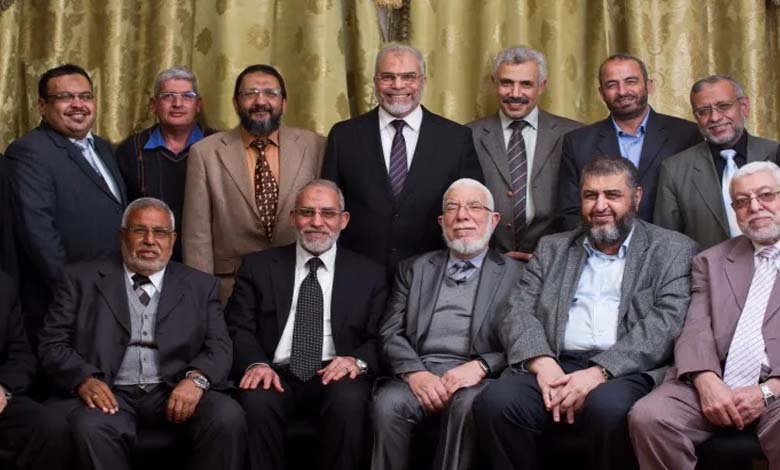Elections marked by division: behind the scenes of selecting a new Muslim Brotherhood leadership

In yet another chapter of internal disintegration, the Muslim Brotherhood has found itself holding internal elections amid a climate of deep division that continues to erode what remains of its cohesion.
The Brotherhood, designated as a terrorist organization in several countries, held internal elections in recent days to choose a new leadership body, without issuing any official announcement so far due to organizational considerations.
These elections, described as a “failed engineering attempt to mend a collapsing structure”, were conducted by the London faction with only a quarter of the members participating. They were boycotted and threatened by the Istanbul faction, and categorically rejected by the Reform Current, amid ongoing challenges and disputed organizational rules.
One faction alone… the rest excluded
The elections led by Salah Abdel Hak’s faction, known as the “London faction”, were held in the complete absence of Mahmoud Hussein’s Istanbul faction and the Reform Current stemming from the General Office. Each faction considers the others as “dissidents” with no legitimacy to represent the Brotherhood.
As a result, the elections became the exclusive affair of a single faction, while the other groups continued to challenge the legitimacy of any results.
The process experienced three consecutive postponements due to escalating divisions and sharp disagreements over the organizational bylaw on which the elections were based.
A legal committee under Mohieddine Al-Zayt had been tasked with amending the previous bylaw, but disputes over the final version persisted. Ultimately, the elections were conducted under the old bylaw despite the committee having completed its amendments.
Limited voting… limited legitimacy
Another cause of postponement was the weak turnout, which did not exceed 25% of registered members across the four sectors in Turkey where elections were held.
Due to the lack of quorum, voting was extended multiple times over two days before being completed, with numerous appeals pending before the electoral and legal committees.
The elections took place at the level of the Shura Council in various countries;
members inside Turkey voted in person, while those abroad cast their votes electronically.
Following the election of the General Shura Council, its members selected the names of the Supreme Administrative Committee, the body that temporarily replaces the Guidance Bureau under the 2021 bylaw granting the Council the authority of appointment.
The Supreme Administrative Committee consists of 21 members: 7 from inside the country, 7 from abroad, and 7 appointed by the acting Supreme Guide in coordination with the Shura Council. According to available information, several leaders who previously left their positions will be elevated to the “Global Office”, which oversees the organization’s international operations.
The Istanbul faction moves covertly to track participants
As for the Brotherhood’s administrative office in Turkey, its elections have not yet been held due to disputes, numerous appeals, and a large number of candidates.
The organization plans to issue a brief statement confirming that elections took place without revealing any details or results, accompanied by a more comprehensive internal circular distributed to members.
Despite the completion of voting, initial indicators suggest that the leadership structure will not undergo significant changes, especially since the elections were limited to a single faction already weakened by internal strife and legitimacy disputes. No member of Mahmoud Hussein’s faction or the Reform Current participated as candidates or voters, given the organizational conflict and the London faction’s refusal to recognize their membership.
The Istanbul faction did not stop at boycotting the elections; it also imposed punitive measures against supporters of the London camp. It warned its members against involvement and threatened to cut financial support and organizational privileges. It also deployed covert members within the London faction to monitor the voting process and identify participants in preparation for disciplinary action, indicating that internal fragmentation will persist despite the formal conclusion of the elections.
Since the Brotherhood’s fall in Egypt and the subsequent collapse of its organizational structure across the Middle East and beyond, the ballot box has ceased to be a symbol of renewal. Instead, it has become a reflection of an existential crisis striking the movement. In this sense, the latest elections have exposed the depth of internal fractures rather than healing them, reinforcing a fundamental question: who truly represents the organization today, and who remains to vote?












